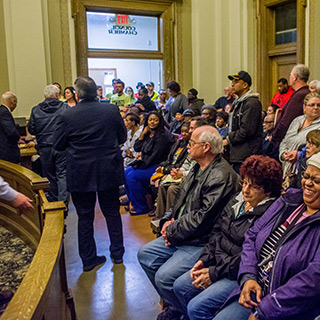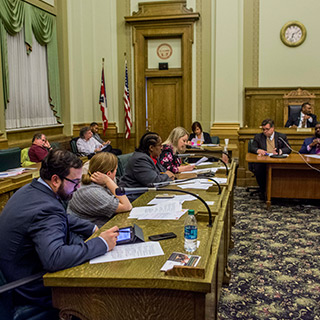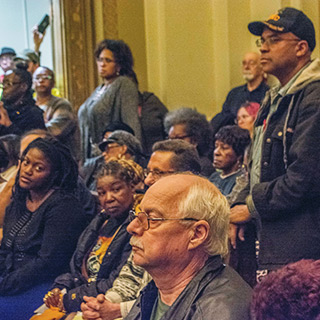With the goal of accelerating neighborhood revitalization, economic development and job creation in municipalities across the U.S., the U.S. Conference of Mayors (USCM) has announced the 2019 Community WINS (Working/Investing in Neighborhood Stabilization) Grant Program.
The program, to be administered by the U.S. Conference of Mayors, includes a $1 million commitment by the Wells Fargo Foundation.
The primary focus of the program is supporting local nonprofits in promoting long-term economic prosperity and quality of life for their community. As such, USCM member cities are encouraged to nominate up to three eligible nonprofit initiatives or programs that address key issues impacting America’s cities. Those issues are: Neighborhood stabilization – projects designed to stimulate growth and stability while assisting in the removal of blight and the rebuilding of neighborhoods; Economic development – projects designed to promote business development; and Job creation – projects designed to aid in local job creation or assist in job training.
“The Community WINS program collaboration is about helping communities succeed,” said Tom Cochran, U.S. Conference of Mayors CEO and executive director. The United States Conference of Mayors is the official non-partisan organization of cities with a population of 30,000 or larger. Each city is represented by its chief elected official, the mayor.
In a joint news release issued by USCM and Wells Fargo on January 28, Cochran added, “Wells Fargo and the USCM are working together, and with our communities, to create positive change by accelerating neighborhood revitalization, economic development and job creation. We look forward to seeing more success in 2019.” In issuing the 2019 program update, the U.S. Conference of Mayors announced a submission deadline of March 22, 2019, noting that grant requirements, application details, application checklists and the online application forms are available on the USCM website.
Through a competitive application process, the conference will determine eligibility and administer grant funds to eligible nonprofits in eight cities, two awards per population category: Metropolitan (500K+); Large (275K-500K); Medium (50K-275K); and Small (50K or less) to support neighborhood revitalization, economic development and job creation initiatives. The population categories have been redefined this year, resulting in the addition of a Metropolitan category and two more awards.
In 2018, Community WINS grants were presented to six nonprofits: Pacific Gateway Workforce Partnership (Long Beach, Calif.); Year Up Greater Boston; Greater Dayton Union Cooperative Initiative (Dayton, Ohio); Near Northwest Neighborhood Inc. (South Bend, Ind.); Youngstown Neighborhood Development Cooperation (Youngstown, Ohio) and The Community Foundation of Greater Rochester (Rochester Hills, Mich.). To read the full story from Smart and Resilient Cities, click here.
 ,
,  ,
, 
 ,
,  ,
, 
 ,
,  ,
,  ,
, 
 ,
,  ,
,  ,
, 
